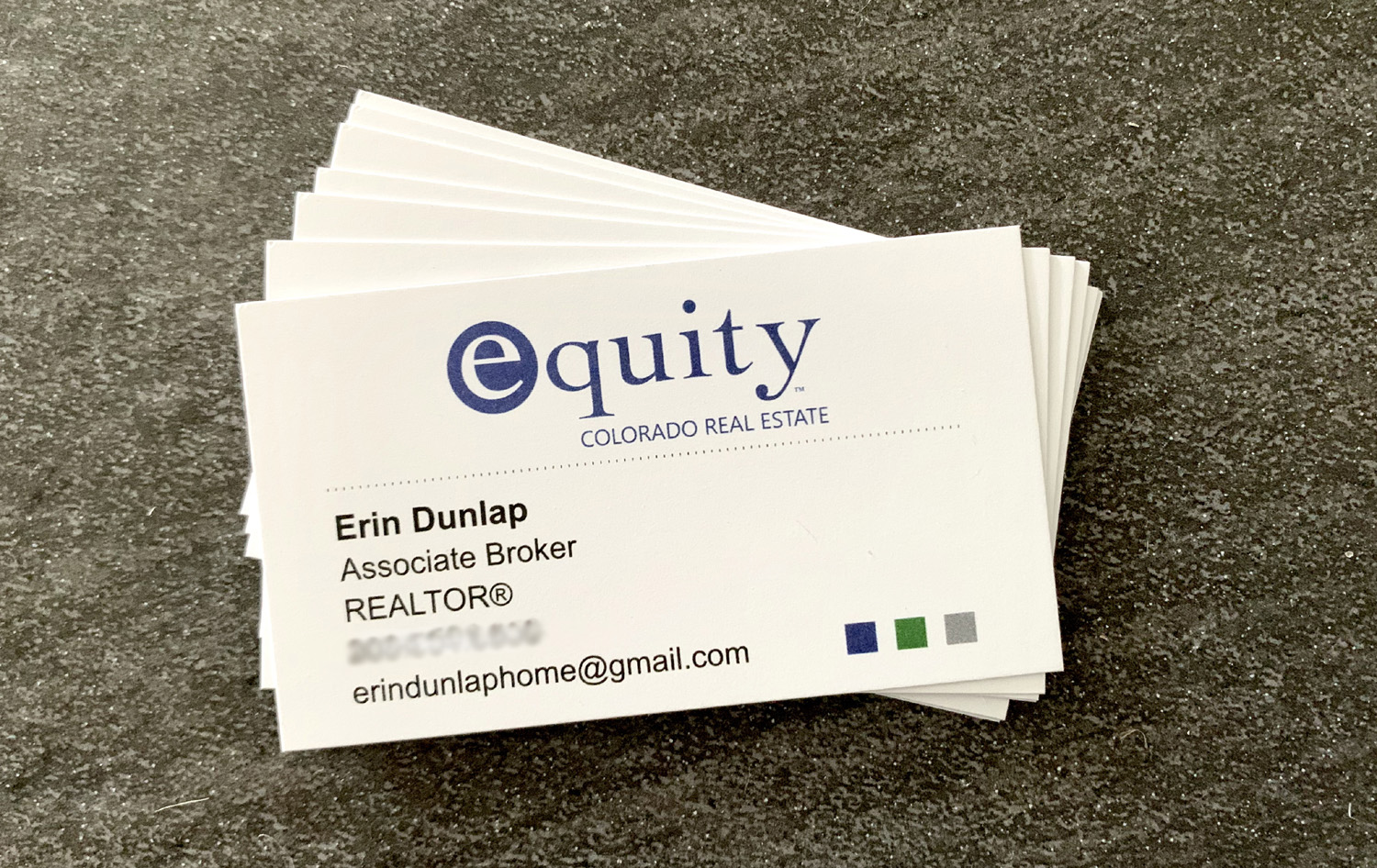
A broker license is a document that demonstrates your knowledge and understanding of real estate transactions. By passing a few exams as well as completing several courses, you can get your broker's permit. Realtors who are licensed must follow the Realtor Code of Ethics. A brokerage must also keep detailed records for three years of all transactions.
Some states require brokers to have a four years college degree in a subject that is related to real-estate. A course may be offered to those who don't have a real-estate degree. These courses do not replace the eight courses at college, but can help you gain the knowledge that you need to work with clients.
Real estate license applicants in Missouri have to pass the state's broker exam. A 48-hour course is required for pre-licensing brokers. They will be taking courses in Real Estate Economics as well as Accounting. At least two years experience as a licensed salesperson in the last five years is required to pass the exam.

If you are interested in becoming a broker, you can take a course about the subject. The additional requirements for this role can help increase their earnings but also come with a few restrictions. Brokers are required to display all licenses at their offices.
Licensees in Indiana must first be licensed as brokers in another state. In addition, background checks must be done. A license in one state may provide tax benefits. You must hold a license to become a California mortgage broker.
Pennsylvania's requirements for a broker license are different from other states. A background check must be completed and the applicant must pass several exams. Licensees from other states will need to show proof. Also, brokers must not be under 18 years.
Also, applicants need to have at minimum a highschool diploma or an equivalent and at least three year experience in the real-estate industry. Pre-licensing education is not required for licensed attorneys who have a real estate license. Alternatively, those who do not have a real estate degree can use their degree to replace the on-the-job experience.

You can get your broker's license by enrolling in several accredited programs. Those who have taken the courses and passed the exam will need to provide proof of their success. Before taking the exam, it is a good idea to practice.
The State Real Estate Commission website has more information on each state's licensing requirements. License applications for most states are available to view. It is a good idea to review the application in order to get the information you need.
You must be able to show a paper or electronic image of the pocket card license. It can either be displayed at the broker's office or kept in book.
FAQ
How long does it take to sell my home?
It depends on many factors including the condition and number of homes similar to yours that are currently for sale, the overall demand in your local area for homes, the housing market conditions, the local housing market, and others. It takes anywhere from 7 days to 90 days or longer, depending on these factors.
How many times may I refinance my home mortgage?
This will depend on whether you are refinancing through another lender or a mortgage broker. Refinances are usually allowed once every five years in both cases.
What is a "reverse mortgage"?
A reverse mortgage lets you borrow money directly from your home. This reverse mortgage allows you to take out funds from your home's equity and still live there. There are two types: government-insured and conventional. With a conventional reverse mortgage, you must repay the amount borrowed plus an origination fee. FHA insurance covers your repayments.
How much money do I need to save before buying a home?
It all depends on how many years you plan to remain there. If you want to stay for at least five years, you must start saving now. You don't have too much to worry about if you plan on moving in the next two years.
Is it possible fast to sell your house?
You may be able to sell your house quickly if you intend to move out of the current residence in the next few weeks. But there are some important things you need to know before selling your house. You must first find a buyer to negotiate a contract. The second step is to prepare your house for selling. Third, you must advertise your property. You must also accept any offers that are made to you.
How can I repair my roof?
Roofs can become leaky due to wear and tear, weather conditions, or improper maintenance. Roofers can assist with minor repairs or replacements. Get in touch with us to learn more.
Statistics
- Based on your credit scores and other financial details, your lender offers you a 3.5% interest rate on loan. (investopedia.com)
- Some experts hypothesize that rates will hit five percent by the second half of 2018, but there has been no official confirmation one way or the other. (fortunebuilders.com)
- When it came to buying a home in 2015, experts predicted that mortgage rates would surpass five percent, yet interest rates remained below four percent. (fortunebuilders.com)
- Over the past year, mortgage rates have hovered between 3.9 and 4.5 percent—a less significant increase. (fortunebuilders.com)
- Private mortgage insurance may be required for conventional loans when the borrower puts less than 20% down.4 FHA loans are mortgage loans issued by private lenders and backed by the federal government. (investopedia.com)
External Links
How To
How to Manage A Rental Property
You can rent out your home to make extra cash, but you need to be careful. This article will help you decide whether you want to rent your house and provide tips for managing a rental property.
If you're considering renting out your home, here's everything you need to know to start.
-
What is the first thing I should do? You need to assess your finances before renting out your home. You may not be financially able to rent out your house to someone else if you have credit card debts or mortgage payments. You should also check your budget - if you don't have enough money to cover your monthly expenses (rent, utilities, insurance, etc. You might find it not worth it.
-
How much will it cost to rent my house? It is possible to charge a higher price for renting your house if you consider many factors. These factors include the location, size and condition of your home, as well as season. Keep in mind that prices will vary depending upon where you live. So don't expect to find the same price everywhere. Rightmove reports that the average monthly market price to rent a one-bedroom flat is around PS1,400. This means that you could earn about PS2,800 annually if you rent your entire home. That's not bad, but if you only wanted to let part of your home, you could probably earn significantly less.
-
Is it worth it? There are always risks when you do something new. However, it can bring in additional income. It is important to understand your rights and responsibilities before signing anything. Not only will you be spending more time away than your family, but you will also have to maintain the property, pay for repairs and keep it clean. Before you sign up, make sure to thoroughly consider all of these points.
-
Are there any benefits? You now know the costs of renting out your house and feel confident in its value. Now, think about the benefits. Renting your home is a great way to get out of the grind and enjoy some peace from your day. Whatever you choose, it's likely to be better than working every day. And if you plan ahead, you could even turn to rent into a full-time job.
-
How do I find tenants After you have decided to rent your property, you will need to properly advertise it. Make sure to list your property online via websites such as Rightmove. You will need to interview potential tenants once they contact you. This will allow you to assess their suitability, and make sure they are financially sound enough to move into your house.
-
How do I ensure I am covered? If you are worried about your home being empty, it is important to make sure you have adequate protection against fire, theft, and damage. You will need insurance for your home. This can be done through your landlord directly or with an agent. Your landlord may require that you add them to your additional insured. This will cover any damage to your home while you are not there. This doesn't apply to if you live abroad or if the landlord isn’t registered with UK insurances. In such cases, you will need to register for an international insurance company.
-
Sometimes it can feel as though you don’t have the money to spend all day looking at tenants, especially if there are no other jobs. You must put your best foot forward when advertising property. It is important to create a professional website and place ads online. You'll also need to prepare a thorough application form and provide references. While some prefer to do all the work themselves, others hire professionals who can handle most of it. Interviews will require you to be prepared for any questions.
-
What do I do when I find my tenant. If you have a contract in place, you must inform your tenant of any changes. If this is not possible, you may negotiate the length of your stay, deposit, as well as other details. Remember that even though you will be paid at the end of your tenancy, you still have to pay utilities.
-
How do you collect the rent? When it comes time for you to collect your rent, check to see if the tenant has paid. You'll need remind them about their obligations if they have not. You can deduct any outstanding payments from future rents before sending them a final bill. If you are having difficulty finding your tenant, you can always contact the police. They won't normally evict someone unless there's been a breach of contract, but they can issue a warrant if necessary.
-
What are the best ways to avoid problems? While renting out your home can be lucrative, it's important to keep yourself safe. You should install smoke alarms and carbon Monoxide detectors. Security cameras are also a good idea. You should also check that your neighbors' permissions allow you to leave your property unlocked at night and that you have adequate insurance. You must also make sure that strangers are not allowed to enter your house, even when they claim they're moving in the next door.